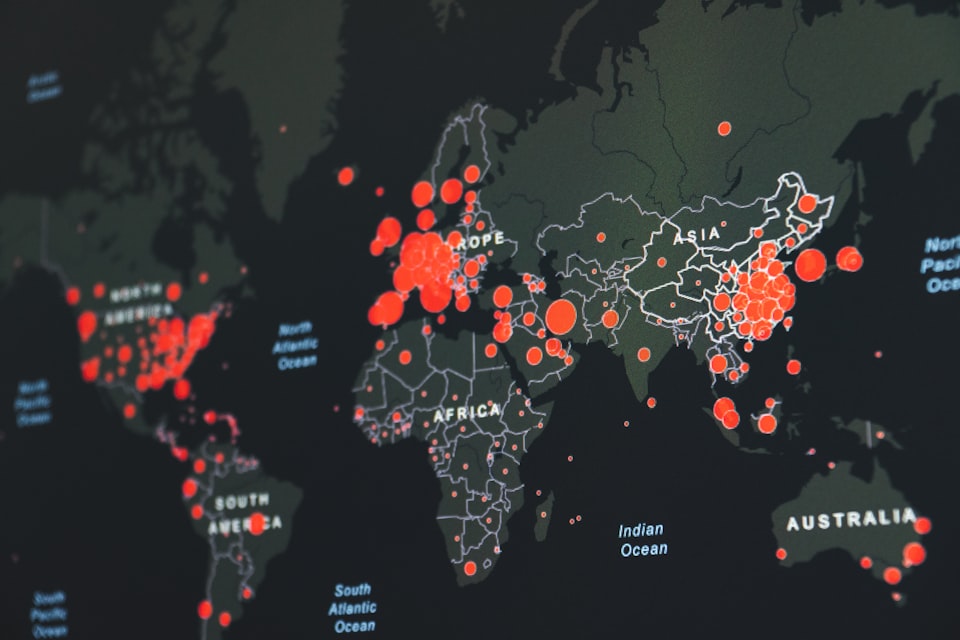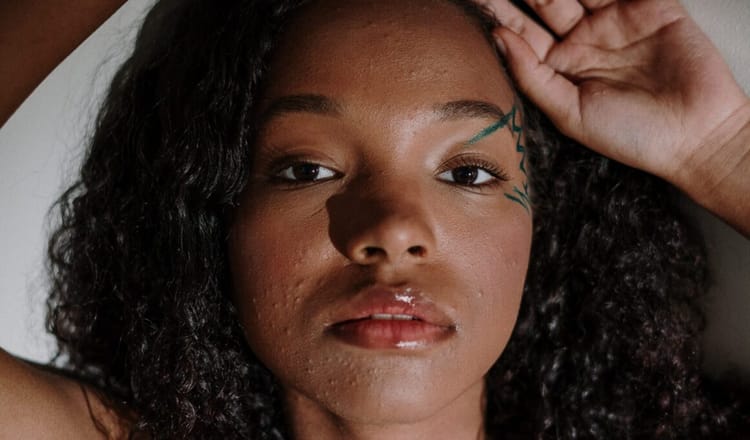How to Feel Less Anxious About the Coronavirus (COVID-19)

This article was published on March 27, 2020.
The novel coronavirus, known in the medical community by its full name of severe acute respiratory syndrome coronavirus 2 (SARS-CoV-2), has fully taken hold in the United States, as has the disease, COVID-19, that it causes.
With the World Health Organization (WHO) declaring COVID-19 a global pandemic in mid-March, many of us have been feeling a level of anxiety that we had previously not considered possible. For those of us who lived through the 2002-2004 SARS outbreak, we remember it as if it were a vague memory; something we know was bad at the time, but which we have since forgotten about.
The novel coronavirus is to be taken deadly seriously. Your life, your parents lives, and especially your grandparents lives depend on it. While I subscribe to the policy of “Hope for the best, prepare for the worse,” there are a million articles, op-eds, and news segments that (rightly) scare the living daylights out of you.
I’m here to offer some relief, without turning your head away from the facts. Your coronavirus anxiety is real, and in some cases it can feel overwhelming. But now isn’t a time to succumb to anxiety or to be overwhelmed; quite the opposite.
Here are seven reasons to feel less anxious about the novel coronavirus, along with suggestions of what you can do in the fight against the spread of COVID-19:
1) Social Distancing Works
I’ve personally been working from home for a little over two weeks, yet it feels like a lifetime.
When I first started working from home, I assumed I was doing so for just a couple days to test the water, before heading back into the office on the following Monday. Not only did that not turn out to be true, even best case scenarios suggest that I will be working from home for another six, seven, or eight weeks, at a minimum.
The reason for this is because social distancing works. Designed to stop the spread of the novel coronavirus (or any contagious disease), social distancing—the act of staying six feet away from anyone, or at least anyone who doesn’t reside in your household, at all times—works because it physically makes it more difficult for the virus to spread between people. As I write this the proof of the effectiveness of social distancing is playing out in New York State, with Governor Andrew Cuomo noting recently that early signs indicate that the state’s stringent restrictions on social gatherings and other measures may be slowing the spread of the coronavirus, with the state’s projected hospitalizations reducing from a doubling every two days to a doubling every 4.7 days.
This is progress. Social distancing works.
2) More Cases = More Tests
Now, I live in New York City, which resides in a state that, according to the most recent estimates as I write this, has more than seven percent of the nearly 463,000 worldwide cases of COVID-19, the disease caused by the novel coronavirus.
This is a staggering number, but it is a number that is in part due to an enormous increase in coronavirus testing in recent weeks, with Governor Cuomo noting himself that this jump in positive cases is due to both rigorous and aggressive testing.
Of course, your takeaway from this shouldn’t be that Wyoming or North Dakota have an enormous number of COVID-19 cases just waiting to be uncovered. More cases does equal more testing, but certain states and countries (and certain urban areas within these states and countries) with higher population densities will, of course, be more susceptible to the spread of the virus than areas with lower population densities. Taking steps to stay safe, such as practicing social distancing and washing your hands frequently, regardless of where you live, will ultimately help to slow the spread of the virus where you are.
3) Limit Your Briefings
Last week, I noticed that I was feeling extremely anxious about the novel coronavirus, despite having not read or otherwise consumed any in-depth information on it for days.
This tactic had been on purpose; I figured that if I distanced myself from the news, something I’ve advocated for in the past, I could get on with my days (albeit from home while practicing social distancing) largely uninterrupted. I knew we were in a watershed moment, that COVID-19, and the social distancing experiment we were all participating in, would go down in history. But I largely wanted to stay away from the drip-drip-drip of news coming out from around the world.
This was the wrong approach. While you should limit how much you’re staying up to date with the hour-by-hour news stories coming out regarding COVID-19, as to consume too much will heighten your anxiety, it’s just as true to say that sticking your head in the sand may prove to make you equally anxious. I like to think of it as staying informed, but not too informed. Find out what you can do to flatten the curve in your community by signing up for text or email alerts, then follow this advice. Do all you can to keep you and your family safe; including your mental health.
4) Dr. Anthony Fauci
At 79 years of age, Dr. Anthony Fauci is the director of the National Institute of Allergy and Infectious Diseases, a position he has held since 1984. Working directly with the last six presidents, Dr. Fauci has overseen the United States efforts in fights against diseases including HIV/AIDS, Ebola, SARS, and of course now, COVID-19.
Dr. Fauci’s calm presence during the administration’s almost-daily press conferences on the novel coronavirus, as well as his willingness to tell the truth, no matter what, significantly reduces my anxiety around the crisis. While Dr. Fauci himself can’t save us from the coronavirus, it is his recommendations, along with those of Dr. Deborah Birx and others, that are helping to flatten the curve.
When asked by The Atlantic if he has felt pressure from the current administration to deliver a particular message about the coronavirus, Dr. Fauci replied:
I made up my mind a long time ago […] and this goes back to the first time I had to speak the truth to Ronald Reagan about the seriousness of HIV/AIDS, when people were not paying attention to it. I was, like, the lone wolf out there: “This is going to be big. We’ve got to do something about it.” I’m doing the same thing now. And my attitude is: I’m going to keep doing that.
Dr. Fauci is the real deal. We are lucky to have him.
5) Doctors, Nurses, and Other Medical Professionals are Superheroes
The novel coronavirus has caused feelings of uncertainty, powerlessness, and of course, anxiety to flourish like never before.
When you’re feeling anxious about the coronavirus, spare a thought for the doctors, nurses, and other medical professionals who are risking their lives each and every day to help care for us and keep us safe. This includes thousands of retired doctors and nurses, who have stepped up and back into scrubs in enormous numbers (52,000 in New York State alone) to help add numbers to the fight against the virus, despite very real risks to their own health.
These professionals deserve our help, support, and praise now more than ever. In the United Kingdom, where I am from, the country recently joined in a mass round of applause from their doorsteps and balconies to give thanks to the men and women of the National Health Service (NHS) for all they are doing during this COVID-19 crisis. Known as the national “Clap for our Carers” event, the organizers “asked people to clap either on their doorsteps or through open windows at 8:00 p.m. to thank NHS staff, including doctors, nurses, GPs, pharmacists, and emergency workers.”
In these times of uncertainty, one thing we can be certain of is the unwavering commitment of our medical professionals to get us through this crisis.
6) The Long-Term Global Outlook
While I can’t honestly say that this helps with my anxiety over the current coronavirus, the long-term global outlook for our ability to deal with a global pandemic of this scale makes me considerably less anxious the more I think about it.
When Dr. Fauci was asked in a recent interview if the United States was adequately prepared for the current pandemic, he noted:
Take the clock back a decade or so. [You could have said] “We have 12,700 ventilators in the strategic national stockpile. Why not put 100,000 in there?” There would not have been any enthusiasm on anybody’s part to spend that much money to do that. Now, retrospectively, when you look back, you say, “Oh my God, why didn’t we put 100,000 ventilators in there?”
After this current global pandemic is over, there is going to be significant enthusiasm on the parts of governments and private businesses around the world to ensure not only that our supplies of ventilators are dramatically increased, but so are our supplies of personal protection equipment (PPE) for doctors and nurses, N95 masks, and more. Some of this production is happening right now, and it’s difficult to believe that this production won’t continue on a global scale after the worst of the virus is over.
7) You
Finally, one thing that helps me feel less anxious about the novel coronavirus above all else is the powers that each of us have to help in this fight in some small (or large) way.
As I touched upon above, if you are a retired doctor, nurse, or other medical professional, and you have no underlying medical conditions, you can volunteer to go back to work to aid in the fight against COVID-19 on the ground. Can you make masks, personal protection equipment (PPE) for doctors and nurses, or ventilators? If you can, contact your state to find out what you need to do to coordinate these efforts.
And let’s not forget the result of social distancing measures themselves; the self-isolation that so many people are feeling around the world and at home in your community due to staying inside to help flatten the curve. I implore you to frequently reach out to elderly family members, both to check in on them (and ensure they’re staying home) and to brighten up their days. I recently switched from speaking with my Nanna on the phone to FaceTiming her every couple of days to check in. She loves it.
Also look out for your own mental health and wellbeing during this time. Make sure you’re getting enough sleep. If you’re working from home, try to get fully dressed every day (the pain is real, I know) even if, just like yesterday and the day before, nobody will be seeing you again today. If you had a morning routine prior to working from home, establish a new quarantine routine that will serve you throughout this time; albeit replacing your morning gym session with some free weights at home.
I hope that the above seven points have helped you to feel less anxious about the novel coronavirus. While it’s important to reduce our anxiety (hope for the best), it’s just as important for us to prepare for the worse. Practice social distancing. Wash your hands frequently, especially after coming back from the grocery store or other essential business. And if you’re lucky enough to still have them, call your grandparents.
If you’re interested in hearing more from me, be sure to subscribe to my free email newsletter, and if you enjoyed this article, please share it on social media, link to it from your website, or bookmark it so you can come back to it often. ∎


